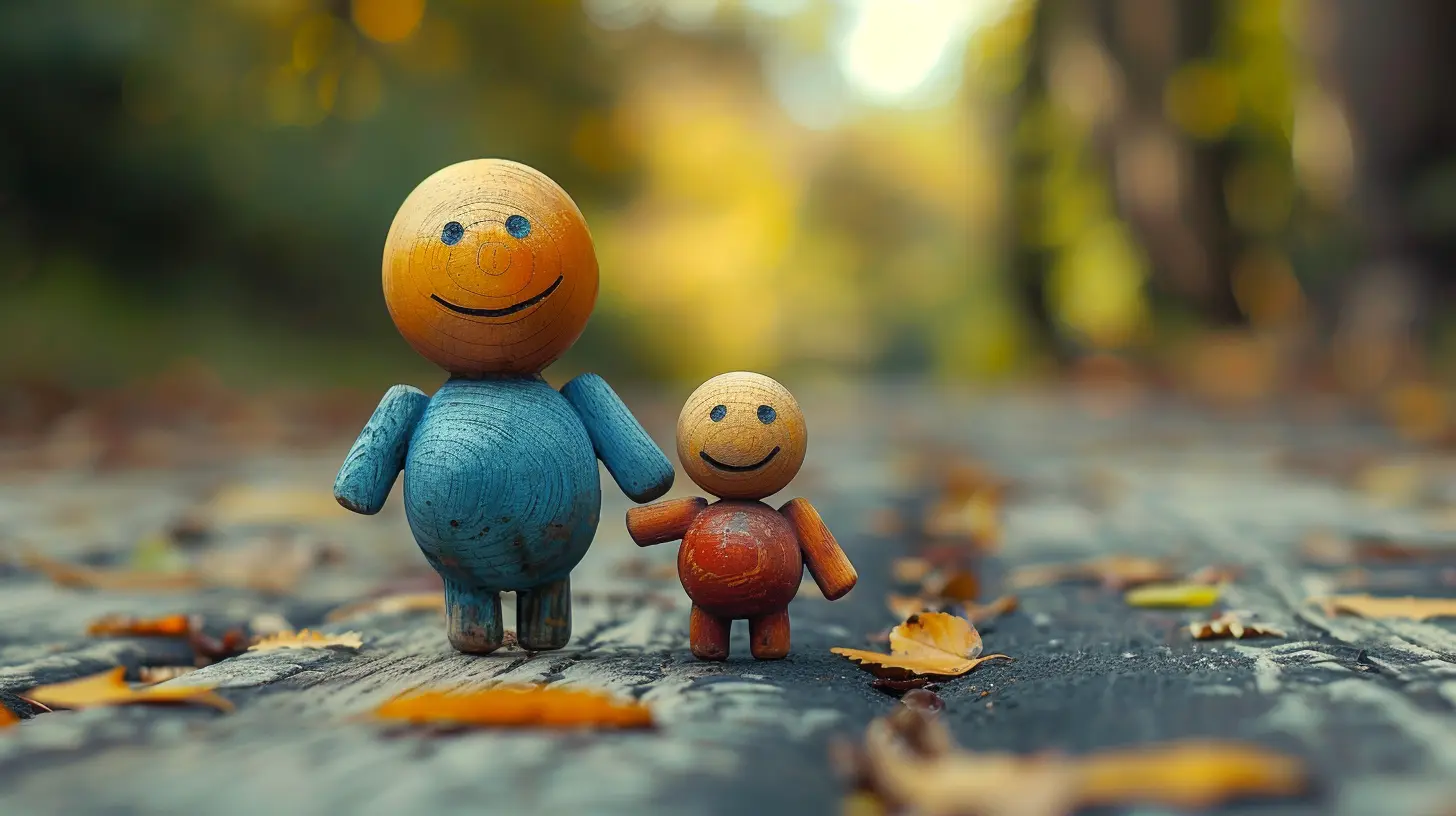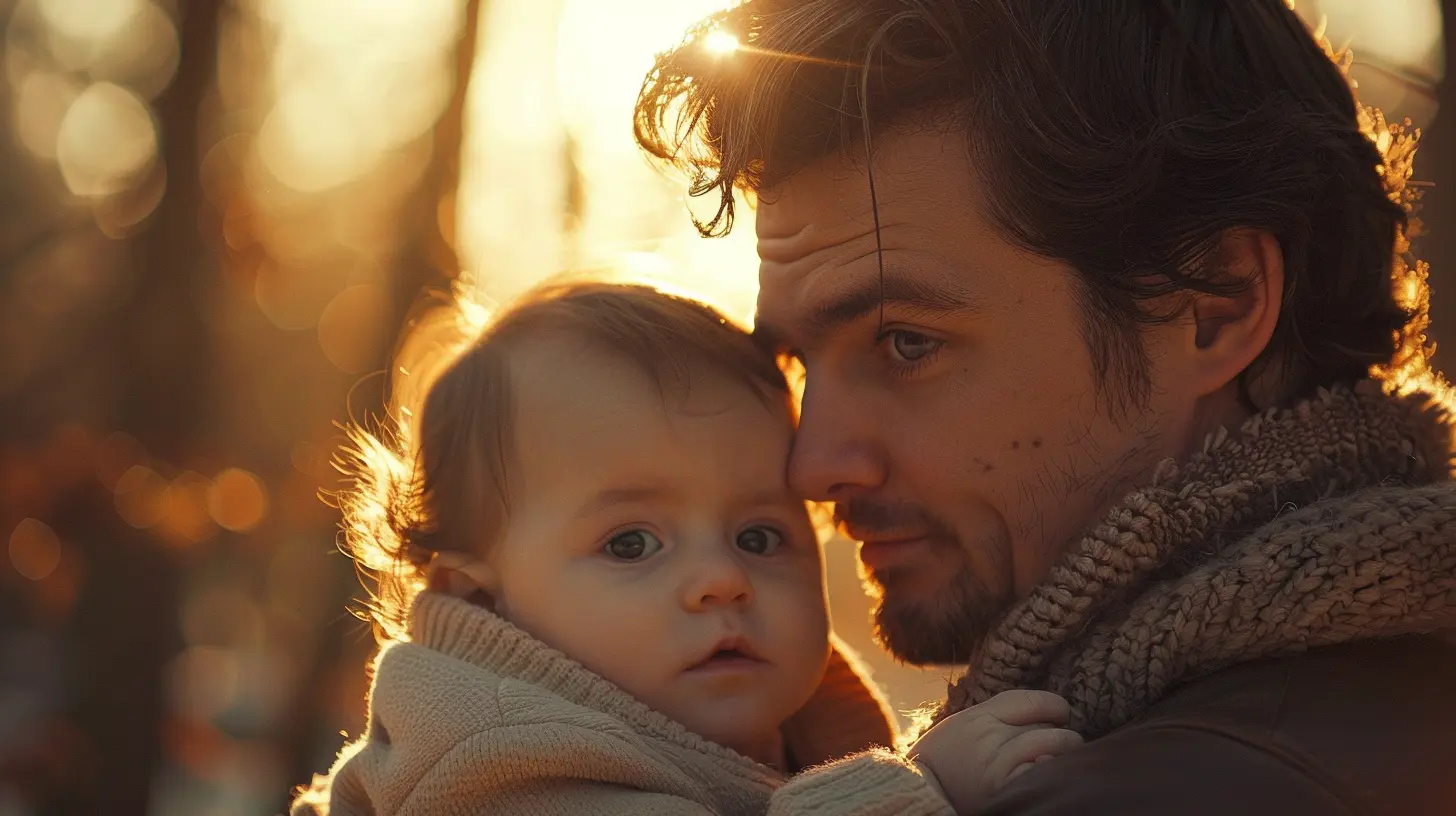How to Model Healthy Relationships for Your Kids While Managing Career Stress
26 November 2025
We live in a time where juggling a demanding career and parenting is more common than not. If you're like most modern parents, you're probably trying to build your career while also raising emotionally intelligent, kind, and well-adjusted kids. But wait—how do you model healthy relationships for your children when you're constantly buried under deadlines, back-to-back Zoom calls, and emails pinging like popcorn?
This article is your real-world guide to showing your kids what thriving relationships look like—even when life gets messy and stressful. Spoiler alert: it doesn’t require being perfect.
Why Modeling Healthy Relationships Matters More Than Lecturing
Let’s be real for a second—kids are basically sponges. They soak up everything: how you talk to your partner, how you handle conflict, and even how you decompress after a rough day. They’re watching, even when you think they aren’t.So here’s the kicker: You can give them all the “do as I say” speeches in the world, but they’ll copy what they see. That’s why modeling positive relationship behaviors—especially when you’re stressed—is one of the most powerful parenting tools you have.
The Balancing Act: Career, Stress, and Relationships
You’re Not Alone If You Feel Overwhelmed
First off, it's okay to admit that juggling work and home life isn’t easy. You’re not a robot. You're human. You're tired. You’ve got spreadsheets in your head and a toddler clinging to your leg. So give yourself a smidge of grace.But here's the good news: being aware of the stress is the first step to managing it in healthier ways. And that means less yelling, more hugging, and better modeling for your little ones.
Stress Can Be Contagious
Have you ever walked into a room and instantly felt the tension? That’s stress energy—and kids pick up on it like emotional WiFi.If your go-to stress response is snapping, withdrawing, or arguing with your spouse, your kids are likely internalizing those as normal ways to deal with pressure. But here’s the upside: just as stress can be contagious, so can calm, empathetic behavior. So let’s dive into how to model the good stuff.
1. Show What Respect Looks Like (Even When You're Tired)
You might be juggling meetings and deadlines, but when you're at home, how you talk to your partner or co-parent teaches your kids what mutual respect looks like.- Say “please” and “thank you” often.
- Avoid sarcasm and eye-rolls—kids notice.
- Disagree calmly and with kindness.
- Apologize when you're wrong (this one’s huge!).
It's okay to argue in front of your kids—as long as you're doing it respectfully. Seeing two adults navigate conflict maturely is probably one of the best life lessons your child could get for free.
2. Be Transparent About Stress—But Don’t Make It Their Problem
Kids can sense when something's off. If you're having a rough day at work, it's okay to say something like, “I had a tough meeting today, and I’m feeling a little stressed. I’m working on calming down.”What you’re doing here is emotional modeling—you’re showing them it’s okay to have hard days, and more importantly, that there are healthy ways to respond.
Just keep it short and age-appropriate. You’re not offloading problems onto them; you’re giving them a front-row seat to emotional regulation.
3. Create Micro-Moments of Connection
You don’t need hours of undivided attention to build strong relationships at home (because, let’s face it, who has tons of free hours?). It's the micro-moments that count.- A genuine “How was your day?”
- A 30-second hug
- A goofy dance together in the kitchen
- Reading a book before bed, even if you’re exhausted
These tiny acts build emotional security and show your kids what nurturing relationships feel like. Even in busy seasons, you can sprinkle in love.
4. Set Boundaries—And Let Your Kids See You Keep Them
If you’re answering work emails during dinner or taking calls during family time, you’re teaching your kids that work always comes first.Flip that script.
- Set “no-screen” zones
- Protect dinner time
- Stick to work hours (as much as possible)
Most importantly, explain why you're setting these boundaries. Something like, “I’m turning off my phone because family time is important to me,” goes a long way in showing your values.
5. Schedule “Relationship Maintenance” Like You Do Meetings
You schedule everything else—why not schedule time to connect with your partner?- Date night (even if it’s pizza and Netflix)
- Morning coffee together
- Regular check-ins about how you're both doing
When your kids see their parents prioritizing each other, it helps them understand that healthy relationships take effort. They learn that love isn’t just a feeling; it’s an action, a choice, and a practice.
6. Laugh Often and Don’t Take Everything So Seriously
Kids don’t care if the laundry is folded or if dinner is chef-level. They care that you laugh with them, play silly games, and show joy.Even during stressful seasons, choose laughter. Be goofy. Dance badly. Make funny faces. Find moments of lightness.
This shows kids that relationships can be fun—something worth cherishing—not just something to “work on.”
7. Talk About Feelings Like They’re Normal (Because They Are)
So many of us grew up with the idea that feelings were messy or inconvenient. Don’t cry. Man up. Calm down. Sound familiar?Break that cycle.
- Use the names of emotions: “I feel overwhelmed.”
- Encourage emotional check-ins: “How are you feeling today?”
- Validate their feelings even if you don’t understand them.
When your kids see you openly and calmly expressing your emotions, they’re more likely to do the same. And that’s what emotional intelligence is all about.
8. Show That Mistakes Are Part of Growth
Let’s say you lost your cool after a long day, raised your voice, or snapped at your partner. Don’t pretend it didn’t happen. Don’t gloss over it.Instead, model responsibility.
Say, “I was really frustrated and I yelled. That wasn’t okay. I’m sorry.”
This teaches your kids that while perfection isn’t the goal, accountability is. Relationships can survive mistakes—sometimes they get even stronger because of how those mistakes are handled.
9. Practice Self-Care (And Tell Your Kids Why It Matters)
Taking care of yourself isn’t selfish—it’s strategic. You can’t pour from an empty cup, right?So take that walk. Book that therapy session. Say no to something. Get enough sleep. Sip your coffee in silence for five minutes.
And tell your kids: “I’m taking a little break because taking care of myself helps me be a better parent and partner.”
Boom. That's some grade-A modeling right there.
10. Keep Checking In—With Yourself, Your Partner, and Your Kids
Relationships aren’t set-it-and-forget-it. They need attention. They need nurturing—just like your career does.So pause often. Reflect.
- Are you communicating kindly?
- Are you spending quality time together?
- Are you showing empathy even under stress?
If the answer is “not really,” don’t spiral. Just course-correct. Small changes make a big impact over time.
Final Thoughts: Progress Over Perfection Always Wins
Look, nobody has it all figured out. That Instagram family with the matching outfits and perfect smiles? They have tantrums and tough days too. The goal isn’t to be flawless—it’s to be intentional.By modeling respectful communication, emotional regulation, vulnerability, and prioritizing connection—even in seasons of stress—you’re giving your kids a blueprint for building healthy relationships for life.
And guess what? That’s way more powerful than any lecture, rulebook, or punishment could ever be.
So take a deep breath, friend. You’ve got this.
all images in this post were generated using AI tools
Category:
Working DadsAuthor:

Max Shaffer
Discussion
rate this article
2 comments
Maggie Watson
What a fantastic read! 🌟 It's so important to model healthy relationships for our kids, especially during stressful times. By balancing love and career challenges, we show them resilience and joy! Thank you for sharing such uplifting and practical advice—it truly inspires us all to thrive together! ❤️
December 1, 2025 at 4:05 AM

Max Shaffer
Thank you so much for your kind words! I'm glad you found the advice inspiring—modeling healthy relationships truly sets a powerful example for our kids. ❤️🌟
Benjamin Estes
Balance is key, always!
November 29, 2025 at 6:06 AM

Max Shaffer
Absolutely! Balance is essential for nurturing healthy relationships and managing stress effectively. It sets a positive example for our kids.


